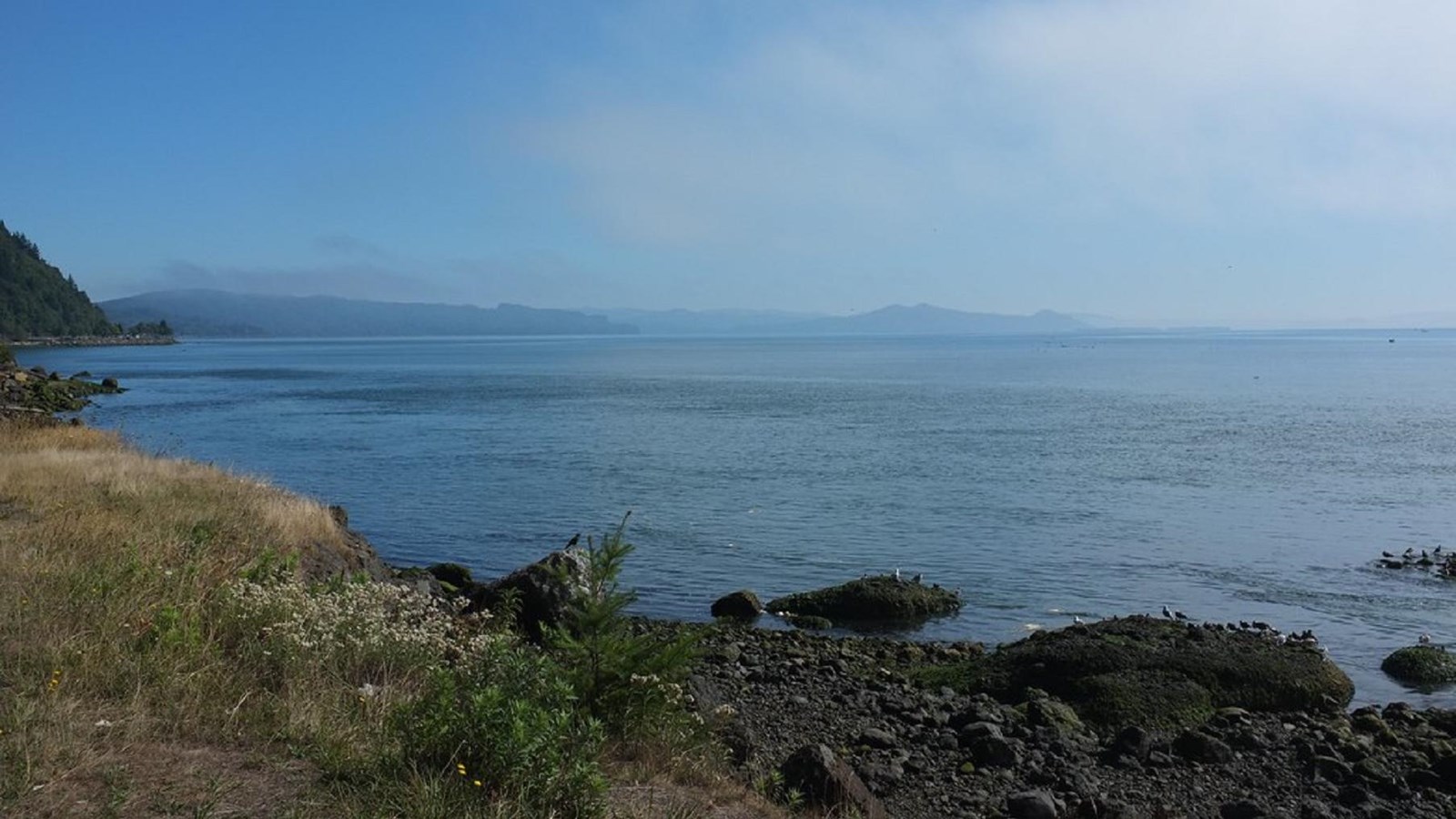Last updated: November 1, 2021
Place
Cliff Point & Hungry Harbor

"Hungry Harbor" by lumachrome is licensed under CC BY-SA 2.0
Lewis and Clark NHT Visitor Centers and Museums
Visitor Centers (shown in orange), High Potential Historic Sites (shown in black), and Pivotal Places (shown in green) along the Lewis and Clark National Historic Trail
When the weather worsened a few days later, the expedition was forced to relocate once more on November 12 in the hopes of finding a drier campsite. Clark describes the dire weather and the new camp in his journal, saying:
The point of land that Clark describes is located at the upstream end of Hungry Harbor and is known as Cliff Point. Unfortunately, this meant that the crew was separated from their cargo by half a mile, as they were unable to carry it with them. The canoes were left to “the mercy of the waves,” having been secured to the best of their ability by using stones to sink them and keep them from being dashed to pieces against the rocks.“A Tremendious wind from the S. W. about 3 oClock this morning with Lightineng and hard claps of Thunder, and Hail which Continued untill 6 oClock a. m. when it became light for a Short time, then the heavens became Sudenly darkened by a black Cloud from the S. W. and rained with great violence untill 12 oClock, the waves tremendious brakeing with great fury against the rocks and trees on which we were encamped. our Situation is dangerous. we took the advantage of a low tide and moved our camp around a point to a Small wet bottom at the mouth of a Brook, which we had not observed when we Came to this cove; from it being verry thick and obscured by drift trees and thick bushes…”
The weather finally let up on November 15, and the expedition hurriedly loaded their gear into the canoes. They made it around Point Distress (modern-day Point Ellice) where they established Station Camp, which would serve as their base of operations until November 24.
Today, Cliff Point can be viewed from the Lewis and Clark Trail Highway (WA-401), approximately two miles southwest of Knappton, Washington. There is no marker at this location, but there is a pullout for vehicles on the harbor side of the road.
